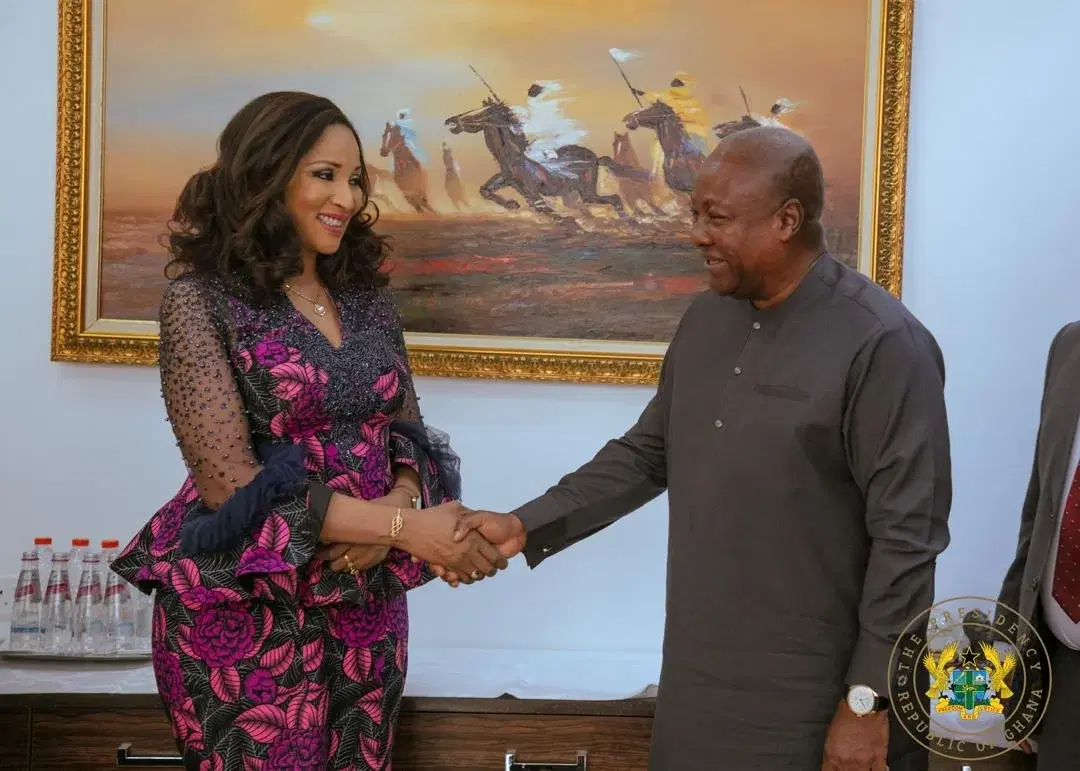
By Online News Desk
Accra, Ghana – Protests have broken out in parts of Ghana, with demonstrators chanting anti-Nigerian slogans and demanding the expulsion of Nigerians from the country. In widely circulated videos on social media, protesters—some waving placards—were seen chanting “Nigerians Must Go,” accusing Nigerian nationals of contributing to rising crime rates and social unrest.
Placards displayed during the protest carried messages such as: “Our Health at Stake Due to Mass Prostitution,” “Nigerians Are Kidnapping and Using People for Rituals,” and “Armed Robbery and Violent Attacks Must Stop.” One female protester in a viral video said, “You cannot be in someone’s country and be doing anyhow—Nigerians must go.”
The protests have stirred memories of past tensions between the two West African nations, particularly during the early 1980s when Nigeria deported thousands of undocumented Ghanaians during an economic downturn—an episode that gave rise to the term “Ghana Must Go,” popularized by the name of the now-iconic checkered travel bags.
Observers have drawn parallels between that period and the current unrest. However, historians note that Ghana had previously expelled Nigerian immigrants in the 1960s under similar economic pressures.
In response to the growing unrest, public figures and commentators have urged both governments to intervene promptly. Speaking on a recent Arise News programme, Nigerian journalist Rufai Oseni noted that Ghanaians and Nigerians share deep historical, economic, and familial ties, and should work together to address crime and social issues constructively.
“One of Ghana’s largest markets—Makola—was built by Nigerians,” Oseni said. “This is not just about migration; it’s about decades of shared history. Pushing each other out will not solve our problems.”
He further emphasized that high-profile Ghanaians, including the late journalist Komla Dumor and even some members of Ghana’s political class, spent part of their lives in Nigeria, benefiting from the country’s hospitality.
The protests have sparked strong reactions online. While some users supported the demonstrators’ concerns, others condemned the blanket condemnation of Nigerians.
User @austinealozie656 wrote: “We don’t blame Ghanaians. We blame our own leaders who failed to provide a secure and prosperous nation for us.”
Another commenter, @leo-ken, added: “If Nigerians must leave Ghana, then Nigerian businesses employing Ghanaians should consider pulling out too. Let’s not punish an entire population for the actions of a few.”
Others called on Nigerians abroad to consider returning home to help build a stronger economy. “Maybe this is a wake-up call for Nigerians to develop our own country,” wrote @user-di53ev81.
So far, Ghanaian authorities have not issued an official statement addressing the latest protest. However, in previous comments, former President John Mahama assured the Nigerian community that Ghana remains committed to maintaining peaceful coexistence and would not tolerate xenophobia. Diplomatic observers are urging the Ghanaian government to swiftly address the rising tension to prevent the situation from escalating. They are also calling on the Nigerian government to engage diplomatically to protect the interests and rights of its citizens living in Ghana.
The protest comes amid wider discussions across Africa about migration, national identity, and economic inequality. Analysts warn that xenophobic sentiments—if left unchecked—could damage bilateral relations, disrupt trade, and fuel further instability in the region.
Despite the current tensions, many citizens on both sides remain hopeful that cooler heads will prevail and that both nations can work collaboratively to address underlying issues.
As one commenter aptly put it: “Nigerians and Ghanaians have come too far together to be divided by fear and frustration. We need unity, not hostility.”